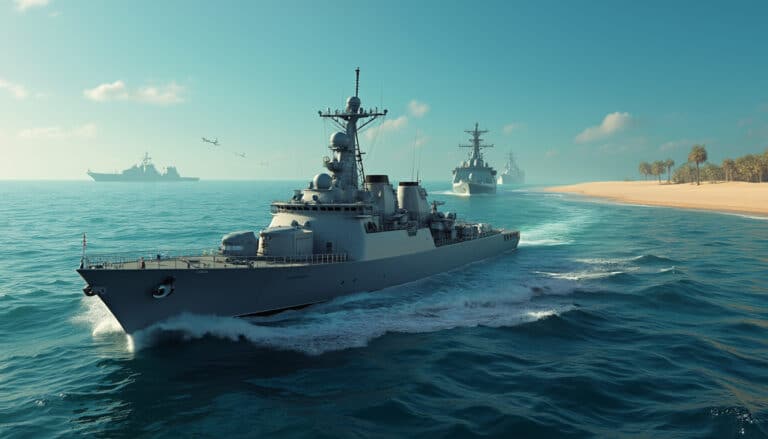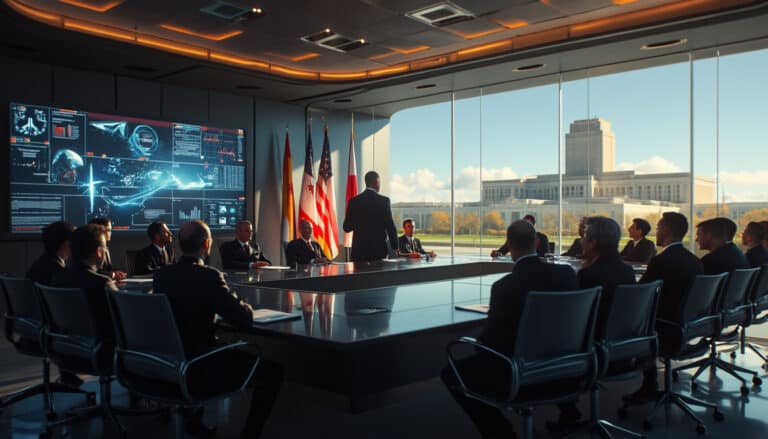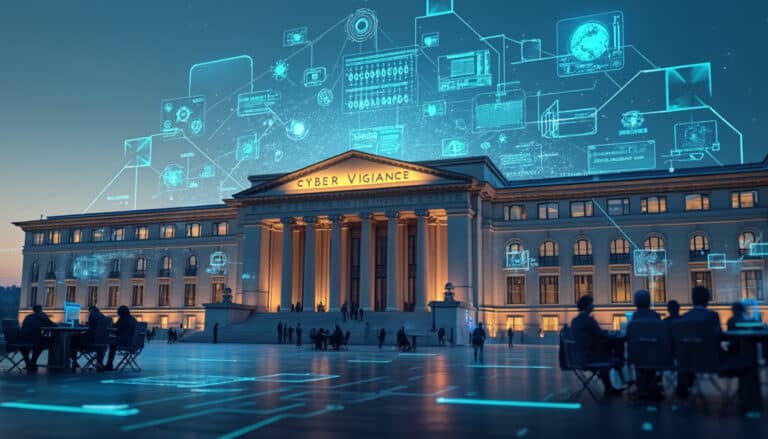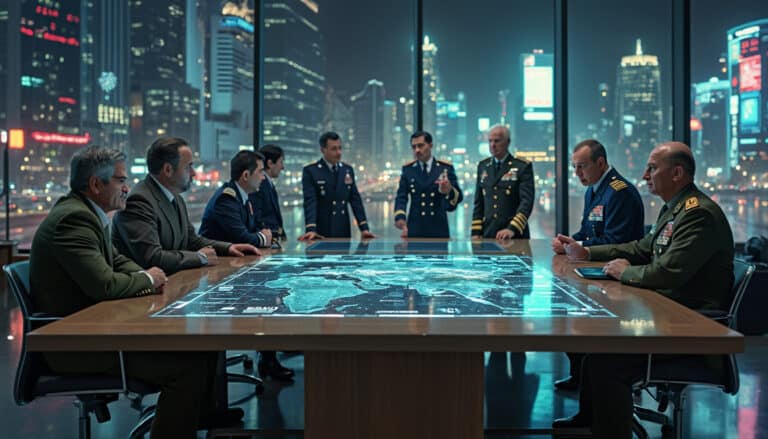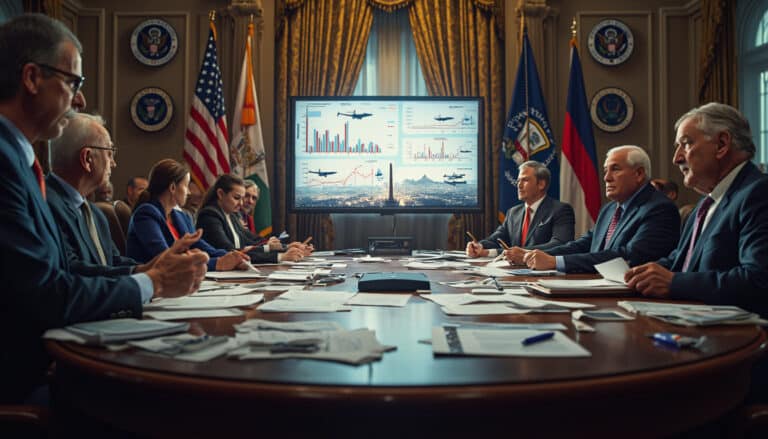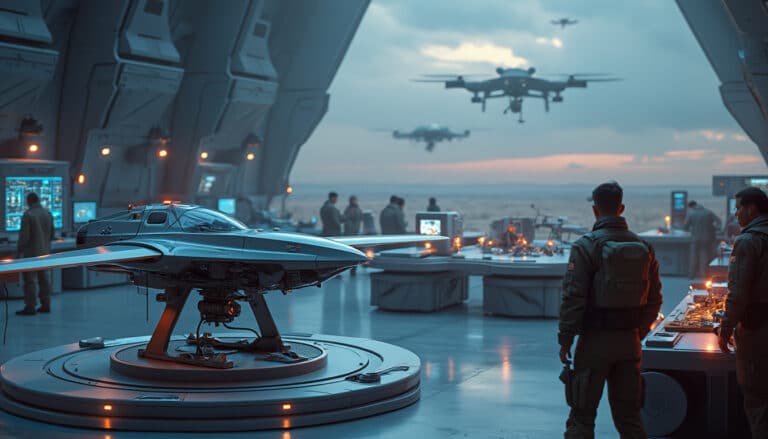The Armed Forces play a fundamental role in defining and preserving our national security. Through their missions of defense, conflict prevention and citizen protection, they act on the front line in the face of emerging threats. The complexity of current geopolitical issues, combined with the rapid evolution of technologies, requires the military to continually adapt to maintain internal and external security. Thus, by integrating innovations and developing advanced strategies, the Armed Forces do not just protect; they also help shape a future where security means stability and prosperity for all of society.
Table des matières
ToggleRole of the Armed Forces in national security
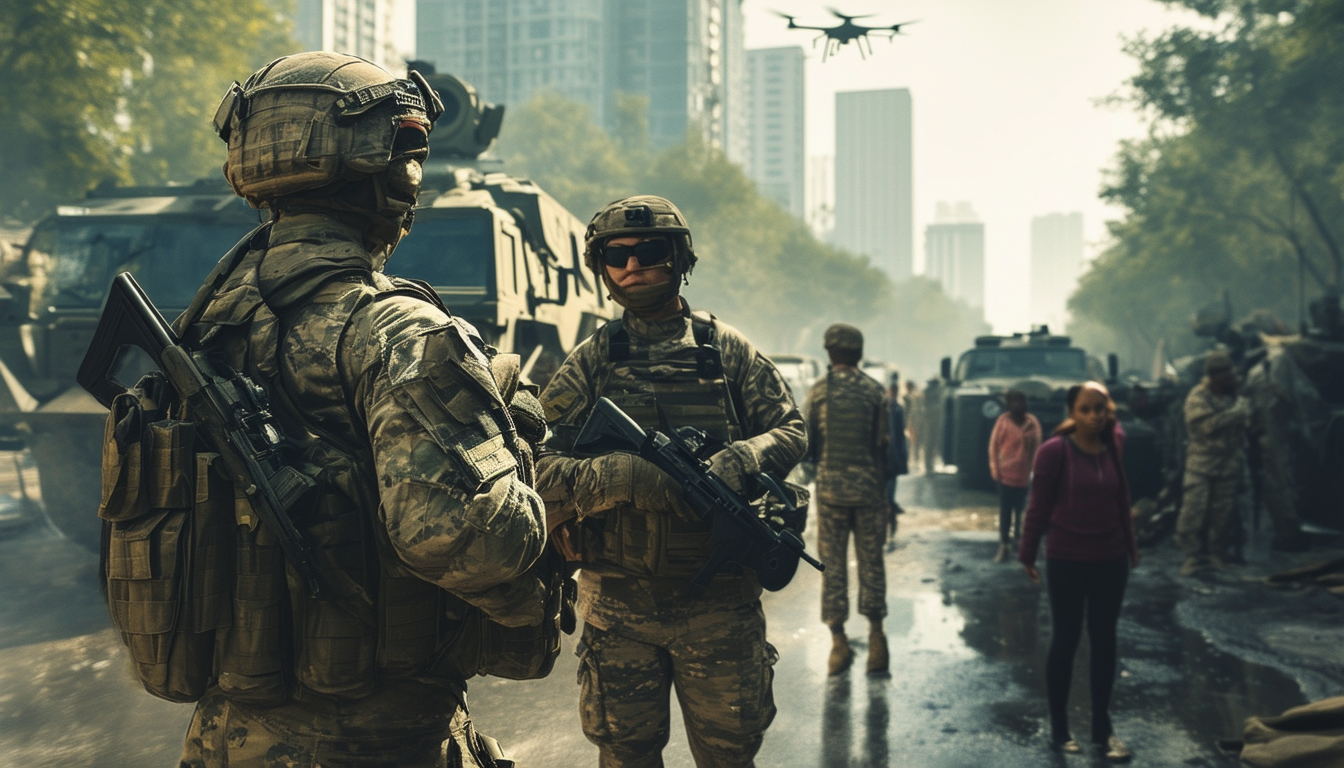
THE Armed Forces play an essential role in the national security, guaranteeing not only defense against external threats but also the maintenance of order within the borders. Their mission is not limited to combat, but encompasses a wide range of activities essential for the protection of citizens and the preservation of sovereignty.
There strategic planning and anticipation of threats are key elements of the military approach. The Armed Forces invest in cutting-edge technologies to detect and neutralize potential risks. This includes:
- Advanced monitoring systems.
- Tactical drones for reconnaissance.
- Cyber defenses to protect critical infrastructure.
Military operations are not limited to traditional defense. They also extend to humanitarian missions, particularly during natural disasters, where the Armed Forces intervene quickly to provide essential assistance. These operations strengthen the link between the army and the civilian population, creating a strong feeling of solidarity.
Additionally, international interactions, such as strategic alliances and collaborations with other nations, create a global security network. This promotes the sharing of expertise and resources, essential in the face of rising global challenges such as terrorism and cybercrime.
Continuing training of the military is crucial to ensure the relevance of skills. Rigorous programs are put in place to develop capabilities in emerging technologies and modern tactics. Soldiers must be prepared to operate in a constantly changing environment.
Finally, the role of the Armed Forces cannot be dissociated from civic engagement. National security awareness and education of younger generations are essential to strengthen the security culture within society.
Crisis preparation and response
THE Armed Forces play an essential role in the national security by guaranteeing the protection of citizens and the country’s strategic interests. Through their military presence, they deter external threats and prepare the ground for effective defense missions.
In a constantly changing world, the armed forces are constantly adapting to new challenges. They are investing in modernizing their equipment and technologies to ensure a robust and responsive defense. The integration of technological innovations, such as drones and cyber defense systems, strengthens their ability to respond quickly to crises.
There preparation and the crisis response are at the heart of the mission of the armed forces. Here are some key aspects of this function:
- Troop training : The military is trained regularly to deal with different types of crises, whether armed conflicts, natural disasters or terrorist threats.
- Inter-agency collaboration : The armed forces work closely with other government agencies and humanitarian organizations to coordinate efforts during emergency situations.
- Rapid mobilization : Their structure is designed to allow rapid mobilization channeled by well-defined emergency plans.
- Constant evaluation : Training exercises and crisis simulations make it possible to constantly evaluate and improve the response capabilities of the armed forces.
Finally, the contribution of the armed forces is not limited to military protection. They also play a role in the international cooperation by participating in peace missions and sharing technical expertise with other countries. This dimension strengthens trust and security on a global scale.
International cooperation and peace missions
THE Armed Forces play a crucial role in the national security. Their main mission is to protect the territory, citizens and strategic interests of the country. This involves not only military operations, but also a reassuring presence and rapid response capacity in the face of various threats, whether conventional, asymmetric or cyber.
The Armed Forces contribute to the stability and to the peace through a multitude of missions. These include border protection, the fight against terrorism and crisis management. Beyond simple defense, they also participate in preparation and the training of citizens in matters of civil security, with regard to natural or industrial risks.
There international cooperation is also a fundamental axis of the action of the Armed Forces. Countries collaborate within the framework of regional or international peace missions to address humanitarian crises and strengthen overall security. These initiatives offer several advantages:
- Resource sharing : Allows you to pool logistical and human resources.
- Joint expertise : Exchange of good practices and advanced technologies.
- Diplomatic influence : Strengthening ties between nations and improving the international image.
The Armed Forces are often deployed in conflict zones for peacekeeping missions, under the aegis of organizations such as the UN or NATO. These interventions aim to stabilize regions in crisis, protect civilian populations and promote lasting solutions, while working towards reconstruction post-conflict.
By integrating new technologies and training in international practices, the Armed Forces are adapting to modern challenges. This includes not only managing military operations, but also deploying innovative solutions to emerging threats, ensuring a secure future for all.
Impact of the Armed Forces on society
The Armed Forces play a vital role in the national security, ensuring the defense of a country’s strategic interests. Their presence helps to deter possible attacks and to maintain a climate of peace which promotes social and economic stability. Each military operation, whether on the ground or in a crisis situation, illustrates the forces’ capacity to protect the population.
Beyond defense, the Armed Forces actively participate in building a secure future through various missions:
- Peacekeeping operations : These international interventions are crucial to stabilizing regions in conflict.
- Humanitarian relief : The military is often on the front lines during natural disasters, providing aid and assistance to affected populations.
- Training and advice : Collaborative programs with other nations help strengthen collective security.
Technological innovation is also a fundamental aspect of the Armed Forces. The integration of new technologies in the defense field, such as drones and advanced surveillance systems, improves the efficiency of operations while minimizing risks to personnel.
In addition, the Armed Forces participate in the human resources training. The military learns skills that can be transferred to civilian society, contributing to the development of a skilled workforce. This interaction between defense and the civil sector results in a strengthening of local capacities.
The powerful synergy between the Armed Forces and society creates a more secure environment. Trust in these military institutions is growing, not only because of their power of deterrence, but also because of their social commitment. This translates into broader involvement in areas such as critical infrastructure protection and emergency response, thereby strengthening national resilience.
Current geopolitical challenges require constant adaptation. The Armed Forces, by embracing innovation and investing in partnerships, are called upon to respond to new threats, whether of state or non-state origin. Their role here is to ensure not only the security, but also to prepare the ground for a future where international relations are based on dialogue and cooperation.
Defense education and awareness
THE Armed Forces play a key role in shaping our security and our future. Their impact extends well beyond military operations, touching various aspects of society. Among the key elements of their influence,education and the awareness to defense occupy a preponderant place.
Defense education is an essential tool to strengthen citizens’ awareness of the issues geo-strategic and national security. By integrating education programs into schools and universities, the Armed Forces contribute to developing a culture of defense and the security. These initiatives aim to:
- Inform young people about the missions and role of the Armed Forces.
- Promote critical thinking when faced with security-related information.
- Encourage civic engagement and patriotism.
Raising awareness of defense also involves communication campaigns aimed at the general population. These campaigns seek to:
- Explain the issues of security that the country faces.
- Highlight the actions of the Armed Forces during major crises, particularly during natural disasters.
- Promote a partnership between civil society and military institutions.
In addition, programs training continuous for members of the Armed Forces ensure constant adaptation to technological and strategic developments. This not only strengthens their capacity for action, but also their interaction with society, by allowing each citizen to better understand the role of the defense forces in maintaining peace and security.
Collaboration with educational institutions and research organizations strengthens research and innovation in the field of defense. This includes:
- The development of new technologies for backup populations.
- The implementation of strategies preparation in the face of contemporary threats.
Thus, the impact of the Armed Forces on society is concretely manifested by their educational commitment and their capacity to raise citizens’ awareness of security situation. By establishing a constant dialogue between the military and the population, they are shaping a more secure future for all.
Technological innovation and research
THE Armed Forces play an essential role in the stability and security of nations. Their impact goes beyond the military framework by influencing several aspects of social and economic life. By acting as a deterrent force, they guarantee the protection of citizens and strategic infrastructure. The importance of this balance is increasingly recognized in the development of national security policies.
Through their actions and their presence, the Armed Forces contribute to the societal resilience. They participate in humanitarian missions, crisis management and the protection of human rights. This societal dimension strengthens public confidence in state institutions and encourages a climate of security essential for economic development.
One of the crucial pillars of the impact of Armed Forces on society lies in technological innovation. Driven by the need to stay at the forefront in a constantly evolving world, they invest massively in the research and development of new technologies. These innovations have positive impacts that go beyond the military domain.
Collaboration between the military and civilian sectors enables the transfer of advanced technologies to civilian applications. Among these, we can cite:
- Drones for surveillance and rapid intervention missions
- Communication technologies secure for the private sector
- Medical equipment from military research
- Crisis management systems based on defense protocols
These innovations, resulting from sustained work by research, make it possible not only to improve the effectiveness of military operations, but also to respond to contemporary issues such as environmental protection or pandemic management. This creates a virtuous cycle where military innovation fuels technological progress in other areas essential to society.
THE Armed Forces are thus key players in the security national, not only by their capacity to defend and protect, but also by their role in the social transformation and technological development. By shaping the future, they actively participate in establishing a safer and more peaceful environment for all.
















